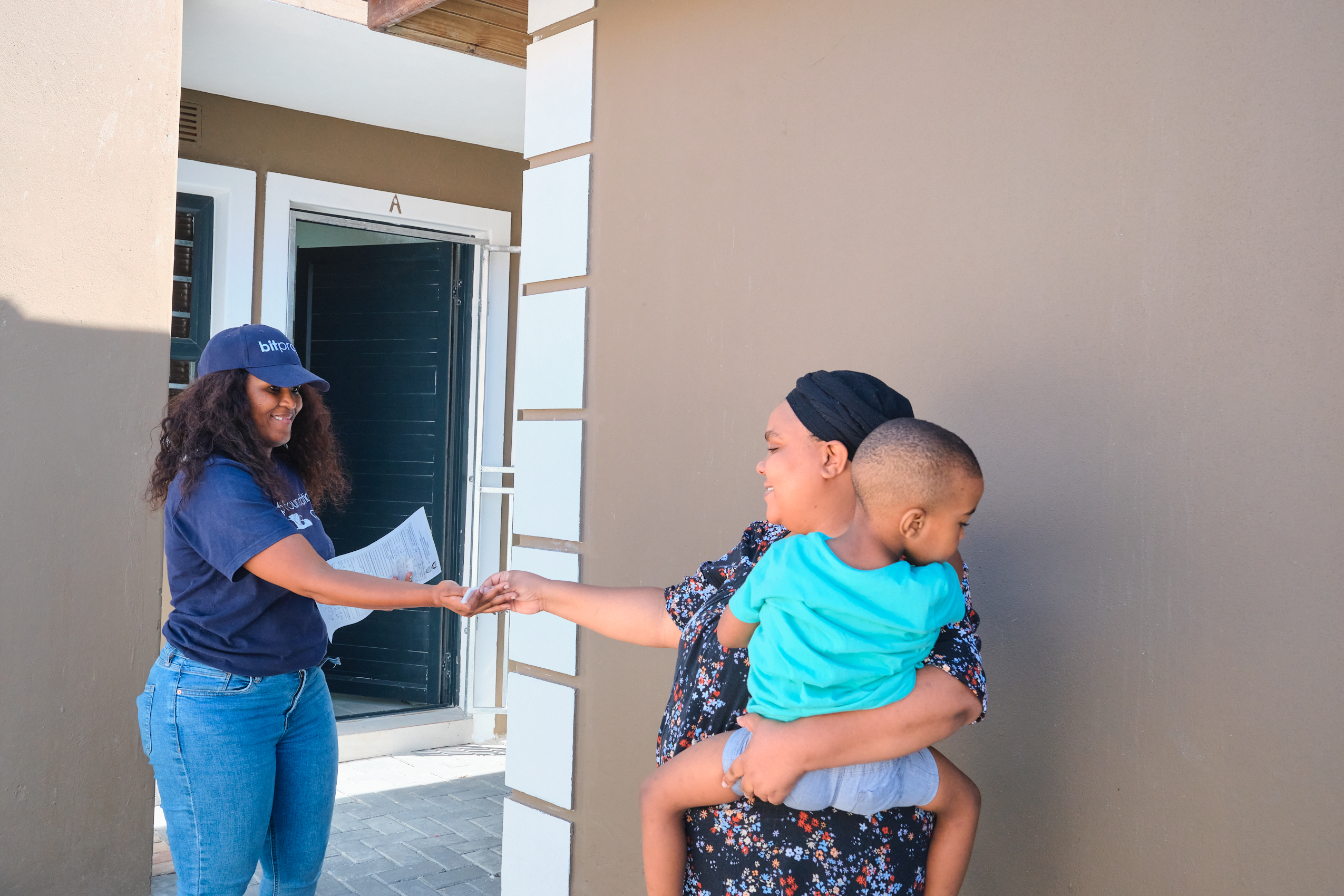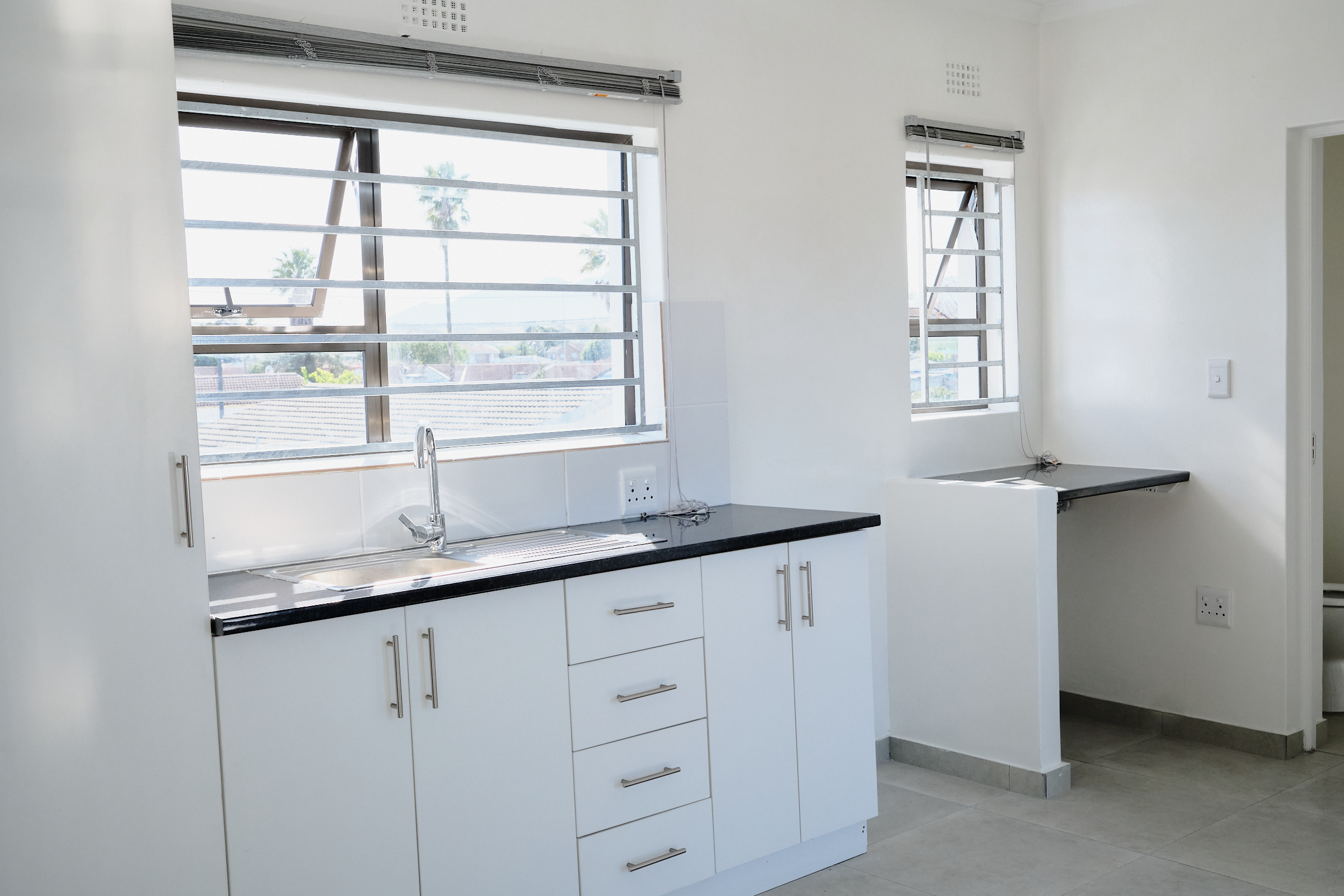

(South African History Online)



Read more about the Bitprop landlord and how flats provide a form of stable Sustainable Income Creation by clicking the button below.

Founded in 2019, Bitprop's first flats in Site B, Khayelitsha went live in May. By December, we had flats in iLitha Park and Makhaza too. This year was about testing our model, establishing a standard, cost-effective building design and learning how best to introduce our offering to the homeowners and tenants who needed it.
“An exciting time when we were trying to figure out what Bitprop was all about.”
- Dylan Walls, COO

COVID brought significant challenges to the construction industry, but rental management continued as usual and the year gave us a good opportunity to focus on our systems and service delivery to our homeowners and tenants.
“COVID lockdown put the brakes on growth, but we focused on developing our design, systems, and relationships with our homeowners and tenants.”
- Jonathan Fisher, CEO

2021 was about improving the design of our flats. This was the year we took our lessons from previous iterations and established a standard design to use across our properties. It was also the year we started incorporating environmentally sustainable materials where possible.
“2021 was a turning point. The introduction of a construction manager and an increase in quality control and systems through all parts of the business made all the difference.”
- Tashriq Abrahams, Architect

2022 was a big year for Bitprop. Our team doubled in size, we expanded to 2 new areas and we tripled the number of homeowners we were in partnership with. We grew from 50 flats to 184 flats, and also standardised the use of plastic-recycled materials in all foundations, slabs and brickwork on our properties.
“The organisation grew in leaps and bounds. This was one of the most amazing years, as our team grew and we operated in an integrated manner.”
- Zandile Nkompela, Homeowner Acqusitions Manager

Another big portfolio increase - 102% growth - with a particular focus on quality, both in terms of the flats we built and the ongoing rental management services provided to homeowners and tenants. We also moved into Cape Town's oldest township, Langa.
“A very busy year with lots of excitement and many successful stories. Bitprop is slowly closing the housing gap in the Western Cape.”
- Nolitha Vanda, Homeowner Relationship Manager

In 2024, we reached a milestone of 500 flats. In March, we were nominated for and won the Innovation City Cape Town Impact Award for 2024, and we added Jason (Software Developer) and Razaan (Architectural Technologist) to the team. In response to significant demand from tenants, we launched our first 2-bedroom units, which have been well received.
"Our focus this year was converting semi-formal processes into efficient systems. We also experimented with the new 2-bedroom model and solar panels.
- Vunene Xiluvane, Marketing Manager



































2024 was a year of stability and maturity. While we expanded our portfolio by more than 30%, we also improved our processes and built the foundations to be able to scale significantly more. This year, we will explore options for new locations in which to pilot and partner with local property owners. We expect to continue building the new 2-bedroom design and expand our offering to that segment of the market, and are excited to roll out solar power generation across our new properties and to retrofit a number of older properties in an effort to improve sustainability and to reduce reliance on the electricity grid.
We believe that to truly create long-term change where it is needed, collaborating with like-minded, optimistic and hardworking people is the best strategy. And we can't address everything ourselves. So we welcome input or collaboration of any form, and invite you to reach out!